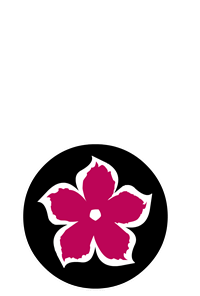Åke Lindstrom, owner and managing director of Lake Natron Camp, has been coming to Lake Natron since the late 1990’s with his parents Peter and Aletta. His wife Nangini, co-founder of the camp, was born close by in Naiobi Village and lived in Ngare Sero, the home of Lake Natron Camp. As a result, the management team have a truly deep and ACTIVE connection to the area and the amazing people that live there.
Local Community
We have a concession with Ngare Sero village to use this area for tourism. In return the village receives $15 per guest per night, plus a yearly land rent fee. The village also receives a further amount from the money paid to the wildlife department. It has been agreed that this money be used primarily for secondary education. We are also involved in community projects that have been requested by the villagers themselves such as building new classrooms at the school, teaching the local community about permaculture, making keyhole gardens in the local bomas and creating a vegetable patch by the school.
We also have 19 Maasai woman working for us at Lake Natron. They are on a 6-week rotation to make it fair to the other Maasai ladies that would like to work.
Our presence here helps increase the value of the environment and its wildlife for the villagers and therefore gives incentive for the village to further protect and cherish this wild area. We also apply pressure to ensure that poaching of wildlife is reduced and dealt with by law.
Ecological information
This camp has been designed to be as ecologically sensitive as possible. It is arguably the most ecologically sensitive permanent camp in Tanzania and the camp has been designed to be 100% removable with a 3 month return to natural state policy.
Initiatives that we have undertaken here include:
100% removable structures. Even our staff areas, which include thatched roofing, are all removable.
Composting toilets. All human waste is managed in such a way to reduce water usage and not be introduced to the local environment. All human waste is taken off site and is composted. It can be introduced to sand pits well away from water sources with no negative impact to the local environment.
We have full time staff assisting to keep out livestock and work with local communities to educate as to why we are doing this. In times of extreme drought, we do allow local livestock to graze for short periods in the morning hours. In this way we foster community understanding but also give wildlife the opportunity to thrive as well.
We encourage and limit any chemicals being introduced to the local water sources by briefing guests as well as ensuring that grey water sources do not reach the springs.
All kitchen waste is taken off site with all non-biodegradable waste removed to Arusha for disposal. Some paper waste is incinerated.
Limited charcoal for cooking comes from eco-friendly brickets – made from recycled wood or coconut husk sources.
We are training our camels to carry water from the local village to camp to reduce our carbon footprint!
Our decking and furniture, in the mess area and pool area, is made out of recycled plastic from Dunia Designs. The company collects plastic from Arusha and makes very cool products from it!
The glassware we use is from Shanga. Over the years Shanga has grown to employ more than 60 people with a range of disabilities to make creative products including weaving, glass blowing, beading, paper making and metal work, using recycled materials wherever possible.
